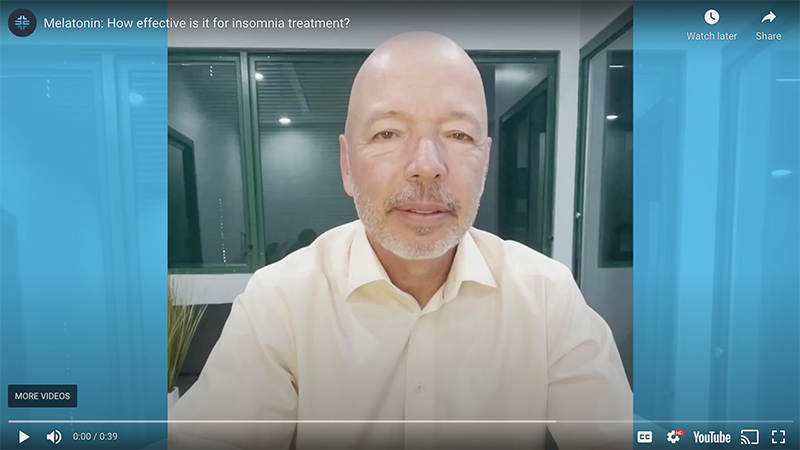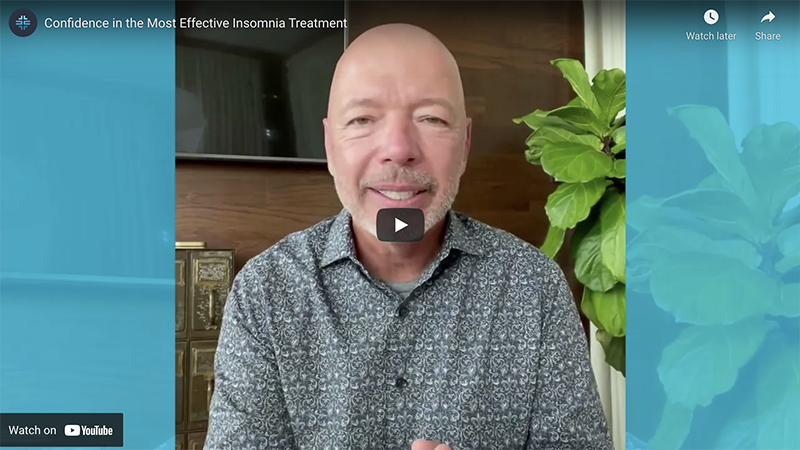As you lay in bed, thoughts run through your mind at a break-neck pace. The one recurring question that frustrates you the most is: Why can’t I sleep?
If you are suffering from sleeplessness, you are not alone. Around 30% of U.S. adults deal with some form of insomnia at one point in their lives. While it is a common problem, there isn’t a singular cause.
Insomnia can develop for several reasons. Stress, sleep environment, sleep hygiene and comorbid physical ailments are all common causes for insomnia, keeping your body from getting the restful sleep it needs.
Psychiatric Disorders
A side effect of depression is the inability to sleep or waking up in the middle of the night. Approximately 50% of insomnia cases are related to depression, anxiety or psychological stress. More than 90% of patients with clinical depression also have insomnia.
There is a strong correlation between being able to sleep and mental health. Many times, negative thoughts and the inability to get good sleep can snowball into severe chronic insomnia. Studies link anxiety, schizophrenia, ADHD and substance abuse to poor sleep as well.
Pre-Existing Medical Conditions
Insomnia is more likely to occur when someone is dealing with another ailment. Only an estimated 10-15% of insomnia patients who have chronic insomnia developed it without another illness or health disorder. As mentioned above, many people dealing with psychiatric disorders have a difficult time sleeping. The same is true for comorbid physical ailments.
Medical conditions such as allergies or back pain can also cause discomfort, making it difficult for you to sleep at night.
Environmental Disturbances
Your sleeping environment is critical for good sleep. Whenever you are disturbed by noise, light, temperature or the discomfort of your mattress and pillow, you’re naturally more likely to develop insomnia. Artificial illumination is one of the most significant contributors to our inability to sleep. Any light that can enter the bedroom at night can inhibit your body’s ability to produce the right amount of melatonin it needs to fall and stay asleep.
The temperature and comfort of your mattress and pillow aren’t luxuries; you need them to be ideal to fall asleep. Whenever you wake up from discomfort, you are more likely to stay awake, which can lead to chronic insomnia.
Lifestyle or Poor Sleep Hygiene
The most straightforward cause of insomnia to address is poor sleep hygiene. Our society runs nonstop, but our bodies aren’t built to run this way. Late-day or evening caffeine, using electronics with backlit screens and consuming large meals or alcohol before bed can make it difficult for your brain to prepare itself for sleep. Naps and other forms of daytime sleeping can decrease the natural sleep debt we need to build every day.
Using your bedroom for anything besides sleep and intimacy can also cause problems. If you use that space with work or entertainment rather than sleep, your mind won’t associate it with rest.
Tips to Help You Overcome Insomnia
There are some causes of insomnia that will require a medical professional or specialist’s attention. Any physical or psychiatric disorders you are dealing with will require expert help and treatment.
If you are still having a difficult time falling asleep, here are a few tips you can use to help treat your insomnia and sleeplessness.
- Set up your bedroom environment for success. Remove as much light from your room as possible. Make your environment quiet before you go to sleep. If you are uncomfortable, see if adjusting your mattress or pillow will help you fall asleep faster.
- Practice good sleep hygiene. Like it was mentioned above, removing late-day or evening caffeine and cutting electronics use an hour before bed are great ways to start addressing poor sleep hygiene. Eating a balanced diet and getting 30 minutes of exercise can help your body prepare for sleep.
- Talk with a sleep expert about cognitive behavioral therapy for insomnia. If you have tried self-help and are still having difficulty falling asleep, talk to a sleep expert at Somly today about cognitive behavioral therapy for insomnia (CBTI). CBTI is a proven method for helping people get the rest they need.
To get in touch with a sleep expert, contact Somly today. Our CBTI program can help you get the rest you deserve. If we can’t help you sleep better, you get your money back.


